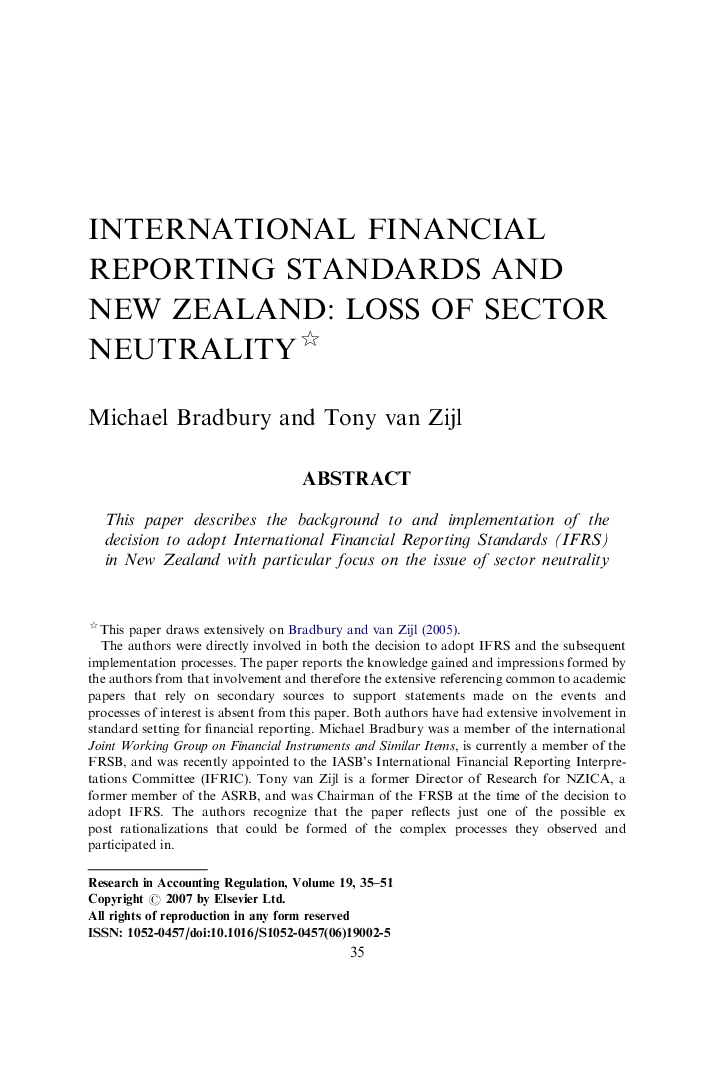| Article ID | Journal | Published Year | Pages | File Type |
|---|---|---|---|---|
| 1006758 | Research in Accounting Regulation | 2007 | 17 Pages |
This paper describes the background to and implementation of the decision to adopt International Financial Reporting Standards (IFRS) in New Zealand with particular focus on the issue of sector neutrality in financial reporting standards. New Zealand's financial reporting standards were originally developed for application only by profit-oriented entities. However, the major public sector management reforms of the 1980s led to increasing calls for financial reporting standards for public sector entities. Separate standards for the public sector were launched in 1987, but this path was abandoned in 1993 in favour of standards that would be applicable to all entities – sector neutral standards. The decision to adopt IFRS was made in the expectation that sector neutrality could be maintained by developing NZ IFRS that would contain additional requirements on recognition and measurement to cover public sector reporting issues but doing so without introducing conflicts with the original IFRS. However, it was discovered that compliance with such NZ IFRS would not allow profit-oriented entities to claim compliance with IFRS. It was therefore necessary to specify that the additional requirements in NZ IFRS apply only to public sector entities and thus – in effect – bring to an end sector neutrality in financial reporting standards in New Zealand.
